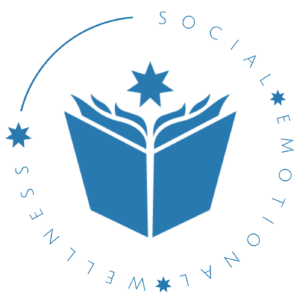
What is Social-Emotional Learning (SEL) and why is it important?
Social and emotional learning (SEL) as an integral part of education and human development. SEL is the process through which people acquire and apply the knowledge, skills, and attitudes to develop healthy identities, manage emotions and achieve personal and collective goals.
Students participating in SEL programs show:
- Improved classroom behavior
- Increased ability to manage stress and depression
- Better attitudes about themselves, others, and school
- Decreased likelihood of having any involvement with police before adulthood, and ever spending time in a detention facility
What are the CASEL Competency areas and how are they connected to student learning?
The Collaborative for Academic Social-Emotional Learning (CASEL) is a reputable collaborative that (in part) reviews research and evidence-based practices related to social-emotional learning. The 5 key competency areas championed by CASEL include: self-awareness, self-management, social awareness, relationship skills, and responsible decision-making. The CASEL competency areas are also aligned with ISBE state standards, which we are charged with teaching as a district. For more information about the competency areas, visit the CASEL website. For more information about state standards, visit ISBE’s website.
How will my child be learning SEL skills this school year?
 We are excited to share that in the 2022-2023 school year, all District 89 students will participate in social-emotional learning through weekly Second Step curricular lessons. Second Step teaches students key social-emotional learning skills – including emotional self-awareness, self-management, social awareness, relationship skills and responsible decision making. Additionally, elementary students engage in daily Morning Meetings when teachers gather their students for 15 minutes to interact with one another and kick-off the day.
We are excited to share that in the 2022-2023 school year, all District 89 students will participate in social-emotional learning through weekly Second Step curricular lessons. Second Step teaches students key social-emotional learning skills – including emotional self-awareness, self-management, social awareness, relationship skills and responsible decision making. Additionally, elementary students engage in daily Morning Meetings when teachers gather their students for 15 minutes to interact with one another and kick-off the day.
What is PBIS?
 Positive behavioral interventions and supports, or PBIS, is an approach schools use to promote wellness and responding to behavior. The PBIS framework emphasizes improving outcomes by addressing systems, practices, and data in a way that is flexible to accommodate local and culturally responsive context, needs, and values. With PBIS, schools teach kids about behavior expectations and strategies. The focus of PBIS is prevention, not punishment. With support from the Midwest PBIS Midwest Network, each District 89 building has a active PBIS team and framework.
Positive behavioral interventions and supports, or PBIS, is an approach schools use to promote wellness and responding to behavior. The PBIS framework emphasizes improving outcomes by addressing systems, practices, and data in a way that is flexible to accommodate local and culturally responsive context, needs, and values. With PBIS, schools teach kids about behavior expectations and strategies. The focus of PBIS is prevention, not punishment. With support from the Midwest PBIS Midwest Network, each District 89 building has a active PBIS team and framework.
What social-emotional supports are available this school year?
Each District 89 school has a system in place for identifying student needs and for responding to student needs when they require support beyond universal teaching and practice opportunities. This includes for students in grades 4th-8th a brief student needs assessment that students take in the fall and spring. The needs assessment helps building teams determine which students need more immediate additional social-emotional support.
A list of additional resources across the District 89 area can be found here:
National
Resources
(165KB)
D89 Community
Resources Brochure
(142KB)
Additional resources can be found through our Regional Office of Education, West40.
Families are also encouraged to reach out to your child’s building with student-specific concerns for additional support.
How can I help my student (or myself!) practice self-management?
Students who are experiencing dysregulation might be experiencing increased levels of stress or anxiety, frustration, or may have their focus impacted (as a few examples). Our brains are not functioning “at their best” during these times. Students who are not regulated are not fully available for learning, for interacting with family members or peers, or for participating in whatever task is at hand. One way students can practice self-management is by selecting an activity of their choosing from our Virtual Calming Rooms.
